End of the career of Minister Sukhomlinov. From triumph to tragicomedy
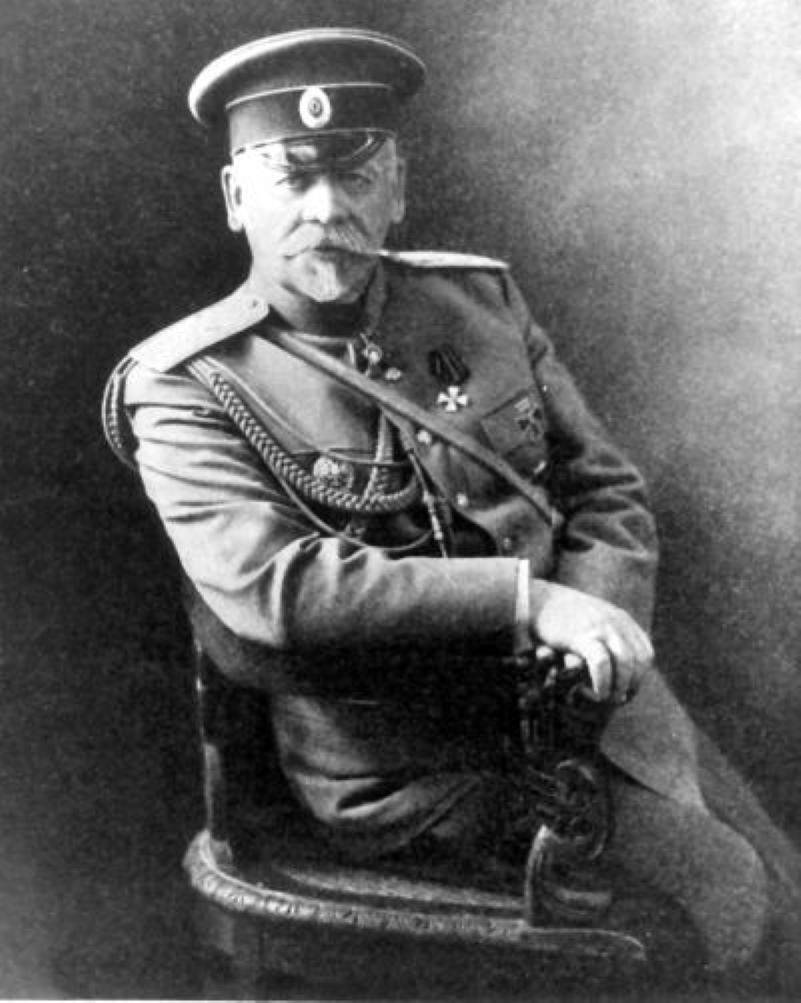
Go to Kiev and ask ...
In Kiev, General Sukhomlinov left not a bad memory of himself. First of all, he managed to cope with the turmoil, not paying attention to the fact that the terrorists, almost without hiding, were preparing an attempt on his life. The new commander of the military district first of all established interaction with the police, gendarmerie, not relying too much on the loyal Cossacks.
Under him, not only all attempts to organize a workers' uprising in Kiev were suppressed, but the Jewish pogroms also stopped very soon. Sukhomlinov did not spare either the left or the right, although no particular cruelty was required of him. Messages from Kiev, where Empress Dowager Maria Feodorovna remained, reassured the emperor, who was not allowed to relax by both capitals - constantly striking and thirsting for freedom.
Already in October 1905, Sukhomlinov was appointed governor-general of Kiev, Podolsk and Volynsky, that is, the entire South-West Territory. And among his Kiev achievements, one cannot fail to highlight the elimination of the so-called "sapper revolt", in which the old Bolshevik Fyodor Petrov, who was slightly wounded, was noted.
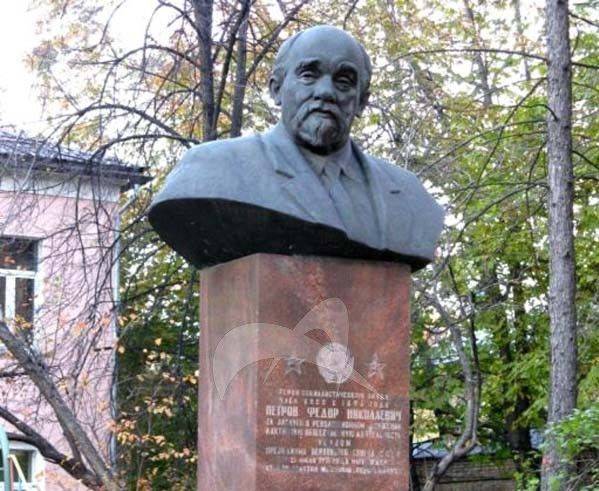
Photo: V. B. Lushpai / warheroes.ru
Walking along the capital's Strastnoy Boulevard, only occasionally pay attention to the monument to F. Petrov (see photo) next to the former edition of Ogonyok and the Catherine Hospital, in which the Moscow City Duma now sits. Well, nearby, among the greenery, Rachmaninov and Tvardovsky are sitting, and at the Petrovsky gate, Vysotsky with a guitar behind him stretched out his arms.
General Sukhomlinov, having calmed Kiev, paid more and more attention to personal affairs. Seeking a divorce for Ekaterina Butovich, he struck up close relations with a number of very dubious persons, including a retired gendarmerie lieutenant colonel S.N. Myasoedov, later accused of espionage.
Soon, the general had to move to St. Petersburg to the post of chief of the General Staff, which to some extent helped to calm down passions and less often communicate with all sorts of crooks. And the main thing is to calmly lead the case to the long-awaited divorce, which will happen only in 1909.
Top of career
Sukhomlinov took the post of Minister of War of the Russian Empire in the spring of 1909, when it seemed that the revolution and revolutionaries were over forever. Such an appointment can be considered the pinnacle of his career, although the general got into the ministry through the General Staff, where he even lost in salary compared to the Kiev posts.
The Grand Duke Nikolai Nikolaevich drew attention to this circumstance, as recalled by the famous memoirist General Epanchin:
The energetic, although, according to all reviews, and very frivolous Sukhomlinov, was considered one of the supporters of the technical rearmament of the army, in which the new minister was clearly at odds with Dragomirov. Someone is even ready to credit Sukhomlinov with the fact that before the world war in the Russian army, automobile units were created, an air force appeared.
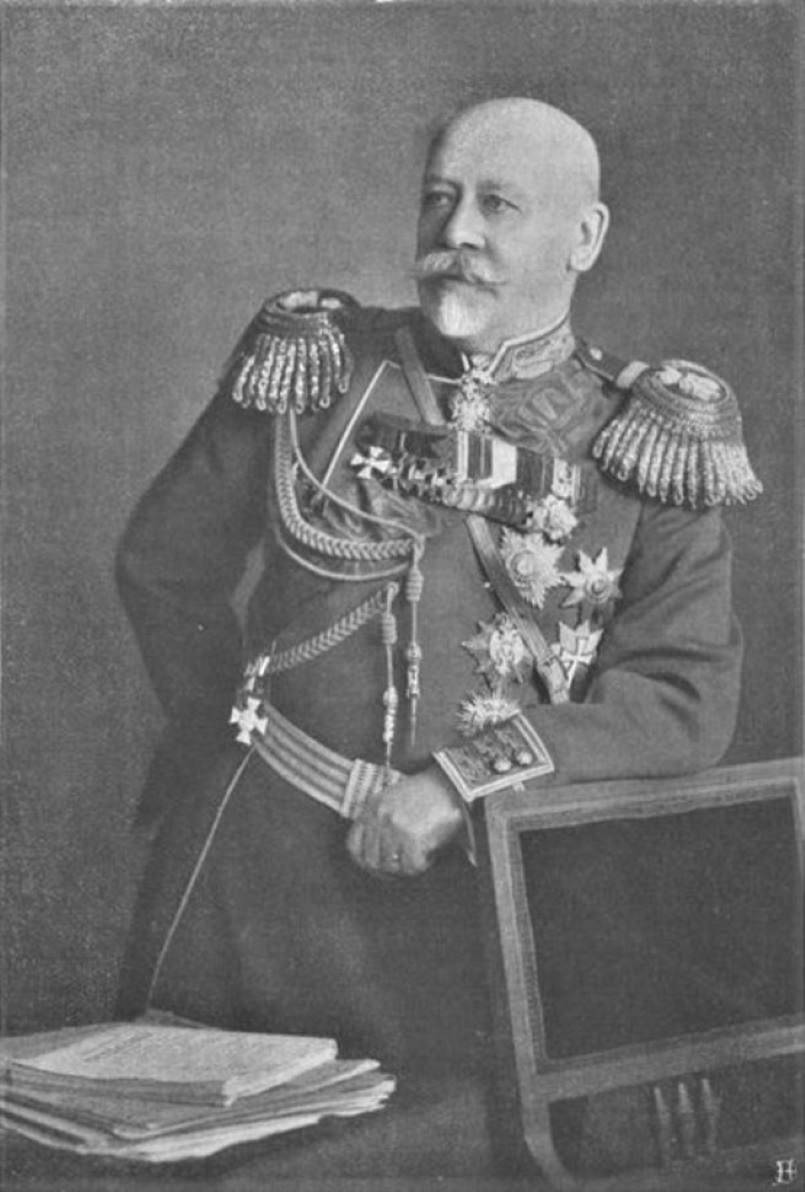
In fact, the minister simply did not resist new trends, one might say, he went with the flow. It is very characteristic of the new minister that General N.A. Yepanchin an episode from an earlier time, when Sukhomlinov was still in command of the district:
- And what's that? What is it, what is it? - he said to me, pointing to the machine-gun team following the regiment ...
- These are machine guns, - at the risk of getting in return that he knows this without me. But his answer was completely different: "Here they are, this is the first time I see them."
If I myself had not listened to these words with my own ears, I would never have believed that this was possible. After all, there is no longer frivolity, but complete carelessness, and this is in the border district ... "
Courtier
Yes, it was under Sukhomlinov that machine-gun teams were formed in the regiments, and air detachments were formed in the corps, but what does the Minister of War have to do with it, if such transformations were under the jurisdiction of the Council of State Defense, which was chaired by Grand Duke Nikolai Nikolaevich.
He commanded the Guard and the St. Petersburg Military District, and in case of war he was supposed to become the Supreme Commander, as it eventually happened. Nikolai Nikolaevich was also a supporter of mobile war and agreed to disband the reserve and serf forces, due to which the field troops were strengthened.
As a result, the minister, not without pride, reported to the emperor that “at the expense of the fortresses it was possible to increase the number of army corps from 31 to 37”. In the case of the fortresses, Sukhomlinov clearly acted not as a military leader, but as a government official who saved state funds.
However, the course of eliminating border fortresses such as Novogeorgievsk or Osovets (in the picture - it still looks very impressive today) turned out to be erroneous, which was confirmed by the experience of the world war. It turned out that, despite all the power of siege artillery and the use of gases, fortresses, even outdated and poorly armed, could well serve as a real support for the front.
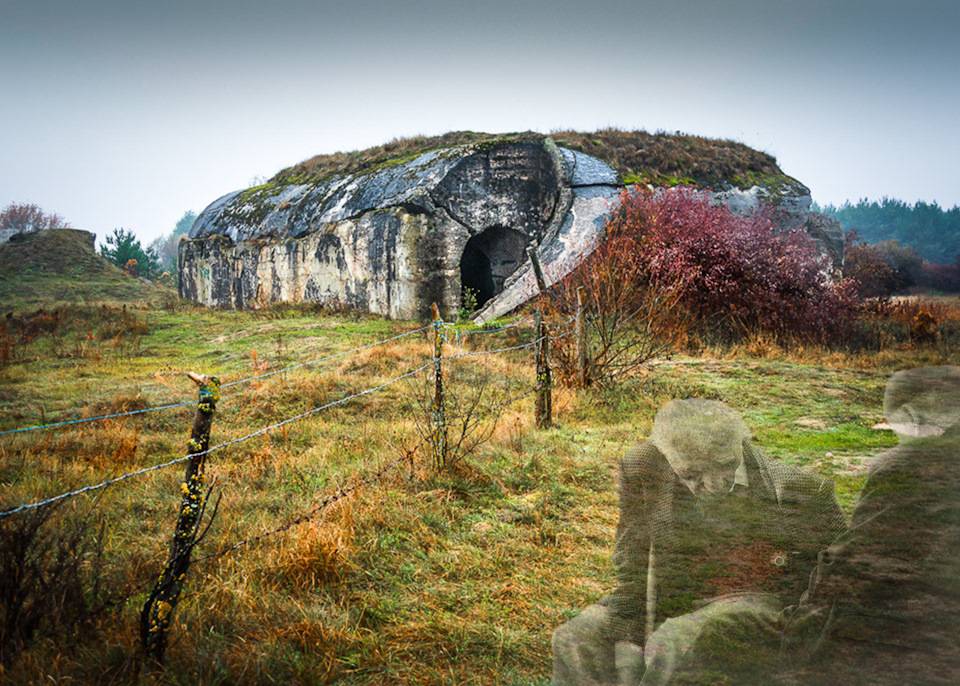
Photo: Yuri Uryukov / https://auto.mail.ru
And also be bases for the supply of field troops weapons, ammunition and food. And the Russian troops, as rightly noted by General V.A. Apushkin, "were forced to fight on the ruins of the forts of Warsaw, which we ourselves blew up, to defend the abandoned Ivangorod."
In the Council of Ministers of Sukhomlinov, with initial full confidence on the part of Prime Minister P.A. Stolypin, strained relations with the Minister of Finance V.N. Kokovtsov. He sought to reduce military spending, in which he was very successful, and to a certain extent not without the participation of the Minister of War.
Sukhomlinov, becoming adjutant general, regularly presented to the sovereign reports, brilliantly prepared by his deputy general Polivanov, with requests and demands for additional military expenditures. However, the minister asked a lot, but achieved little - Nicholas II was able to slow down a lot.
In addition, having coped with the revolution, the emperor, always preoccupied with family affairs more than state affairs, excessively believed in the power of the autocratic idea. Together with Stolypin and other reactionaries, he embarked on a course for the consistent elimination of all "so-called freedoms." Sukhomlinov regularly received from Nicholas II something like carte blanche.
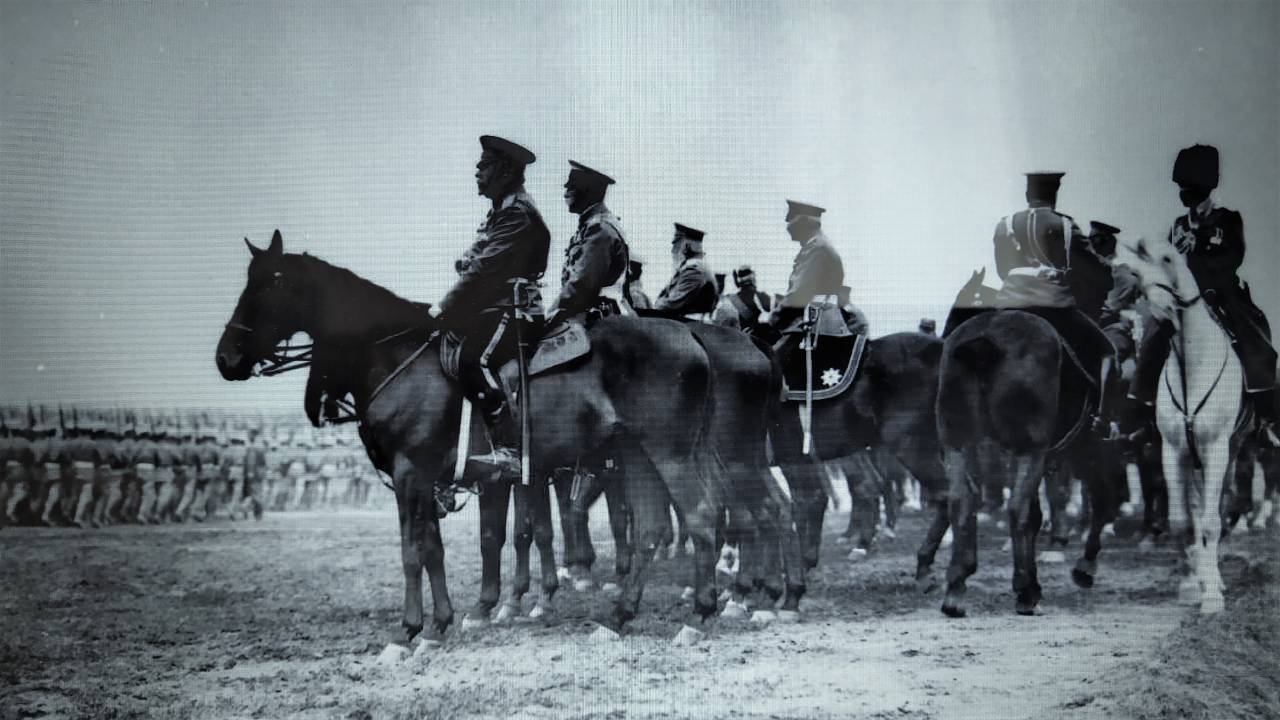
He himself hardly doubted that he was doing everything he could and what he was capable of, for the sake of victory in the next big war. Not by chance, from his lips, and once - directly from the pen, in the "Stock Exchange", assurances sounded that "We are ready." During the first of the Balkan Wars, Sukhomlinov almost provoked a clash with Austria-Hungary, proceeding from the fact that since the war cannot be avoided anyway, it is better to start it earlier.
General from defeat?
The first of Sukhomlinov's biographers, the aforementioned V. Apushkin, a member of the Investigative Commission of the Provisional Government, called him “a general from defeats,” although the minister was not a commander, and could not be. But at the same time, no one disputes the fact that Sukhomlinov did practically nothing to ensure that Russia avoided many defeats in the world war.
Sukhomlinov's arrival at the military department can be considered his bureaucratic triumph. The general made Nicholas II return to pre-revolutionary practice, when all military departments were under the authority of the minister. Thus, he took responsibility for preparing Russia for war.
The indisputable authority in the study of the world war N.N. Golovin wrote:
Sukhomlinov's predecessors, according to Golovin,
Sukhomlinov was fully convinced that the knowledge he had acquired decades ago, while often already obsolete, remained unshakable truths. General Sukhomlinov's ignorance was combined with amazing frivolity. These two shortcomings allowed him to be surprisingly calm about the most complex issues of organizing military power.
People who did not understand the complexity of modern military affairs had the false impression that Sukhomlinov was quick to understand the matter and was very decisive. Meanwhile, he simply became like a man who, walking near the abyss, does not see it. "
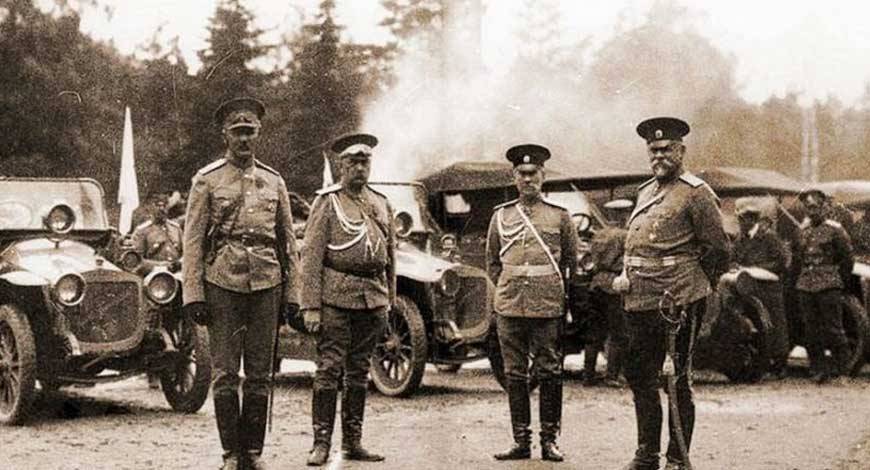
And, in fact, it was the minister, relying on the full confidence of the autocrat, who turned the military department into an outcast, who may not even reckon with other departments. Because of this, private business, which was developing at an unprecedented pace in Russia, was not allowed to take part in defense orders.
Only after V.A. Sukhomlinov, his successor - General A.A. Polivanov (Minister of War for Wartime) managed to put things in such a way that the Russian army just a year later, in the summer of 1916, won brilliant victories. After the Brusilov breakthrough, the Germans had to actually save Austria-Hungary from defeat.
At the same time, Turkey was in complete collapse after the defeat at Erzurum and the threat of a breakthrough by the Russians in the interfluve of the Tigris and Euphrates. The loss of Armenia and almost the entire territory of Kurdistan was viewed in Istanbul as a completely worthy reason for surrender.
Isn't it true that the February Revolution happened at the right time?
wreck
With the outbreak of the First World War, when by the spring of 1915 a large shortage of shells and other military equipment was discovered, Sukhomlinov was considered the main culprit for the poor supply of the Russian army. In June 1915, the Adjutant General was dismissed from the post of Minister of War, but Nicholas II retained his place in the State Council of the Empire.
Soon, an investigation of Sukhomlinov's activities at the ministerial post began, and information about Lieutenant Colonel Myasoyedov surfaced almost immediately. He was hastily shot, and in March 1916 he was dismissed from military service and Sukhomlinov, the emperor actually handed over his minister to be torn apart by the State Duma and "society."
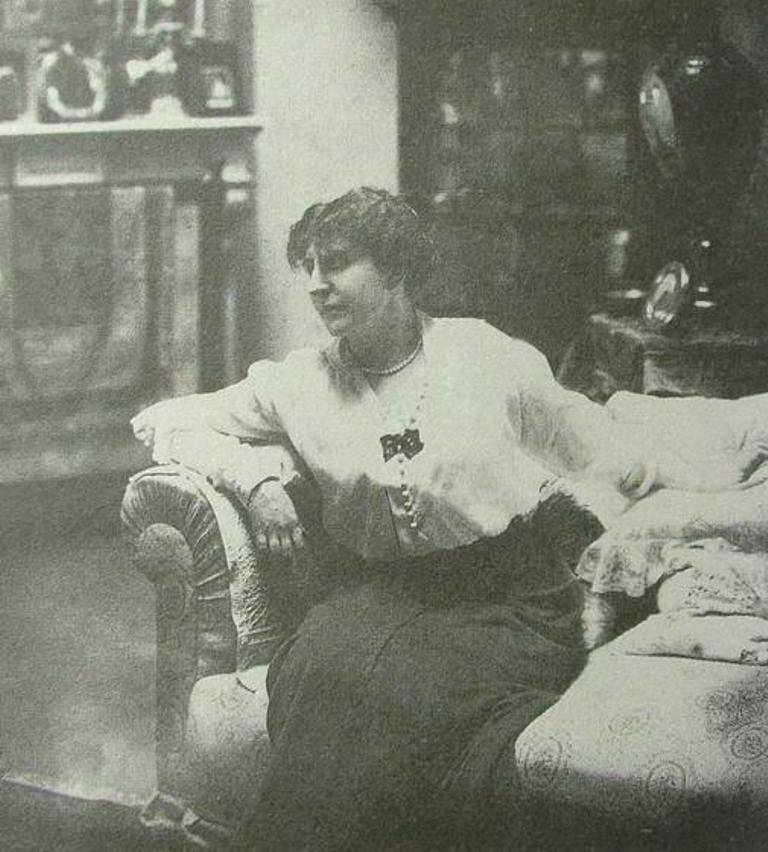
They even brought in the wife of the minister E.V. as an accomplice. Butovich (pictured), but in the end all charges against the woman who “only spent the general’s money” were dropped. The aging general himself, even under the tsar, ended up in the Trubetskoy bastion of the Peter and Paul Fortress. But he was already judged by the "temporary" ones - in the summer of 1917.
The trial dragged on for more than a month, and the bribery charges clearly faded against the background of words about treason and inaction of the authorities. But Sukhomlinov, who was sent under house arrest from Petropavlovka, was actually convicted only for the army's unpreparedness for war. The verdict, however, was very harsh - indefinite hard labor and deprivation of all rights of the state.
Hard labor was replaced with the same Trubetskoy Bastion and then "Kresty", from where Sukhomlinov was released in May 1918 by the Bolsheviks. Amnesty and old age - the ex-minister turned 70 years old. Vladimir Alexandrovich and his wife quickly moved to Finland, which had just gained independence, and from there to Germany.
He wrote a very superficial memoir and a book about Grand Duke Nikolai Nikolaevich, whom his supporters in exile “appointed” as the successor to the Russian throne. Before his death on February 2, 1926 in Berlin, Vladimir Alexandrovich managed to work hard in the field of the Reichswehr revival, being a consultant at the German General Staff.
Information